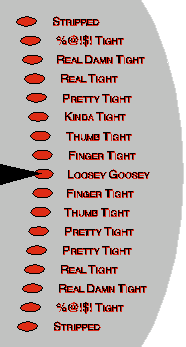Torque is a very inexact way of determining bolt stretch. Based on material composition; if you know the exact "stretch" (which you can't know.) three mechanisms come into play (at least): "creep", metal fatigue, and location of stresss on the stress/strain curve. (you can get on the internet to learn about these items.)
Readers digest version: replace the fastener with a better grade..you don't have the ability to determine the nature of the fracture.
Readers digest version: replace the fastener with a better grade..you don't have the ability to determine the nature of the fracture.

